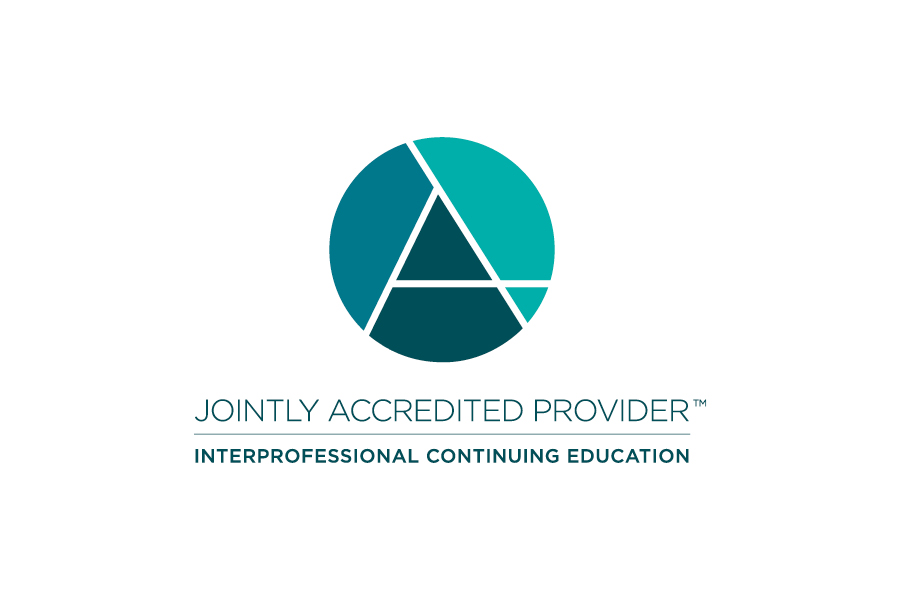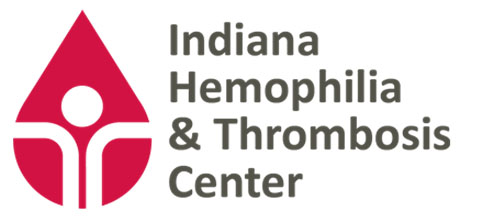Online Education
- Home
- Online Education
Important Note
You will need to login first in order to enroll or view an activity. Login Here
*Note: ✔ = Contact Hours Provided AND ✖ = No Contact Hours Provided
Psychosocial Concerns and Coping Strategies for Persons and Families Living with an Inhibitor
- Credits: 1.0 (ASWB ACE), 1.0 (ANCC), 1.0 (IPCE)
- Expiration Date: September 15, 2025
Psychosocial Concerns and Coping Strategies for Persons and Families Living with an Inhibitor Details
Activity Number and Title
23HT00106 Psychosocial Concerns and Coping Strategies for Persons and Families Living with an Inhibitor
Release Date
September 15, 2023
Expiration Date
5:00 PM Eastern, September 15, 2025
The estimated time to complete this activity is 60 minutes.
Purpose Statement
The purpose of this activity is to enable the learner to address the burden of reduced quality of life that has been documented among persons and families with hemophilia with an inhibitor. This module describes various validated quality of life instruments and patient testimonials to provide insight into differences in both the physical and mental health-related quality of life domains for persons with hemophilia with an inhibitor and their parents/caregivers versus persons with hemophilia without an inhibitor. Highlighting how living with an inhibitor compromises quality of life, the module offers strategies for effective psychosocial interventions to address these issues in persons with hemophilia with an inhibitor and their caregivers and family members. Social workers, nurses, and other healthcare professionals involved in the management of persons with hemophilia with an inhibitor will benefit by learning more about interventions to address reduced quality of life and how to implement such strategies.
Activity Description
The module reviews studies using a variety of validated quality of life instruments to provide insight into differences in both the physical and mental health domains for persons with hemophilia with an inhibitor and their parents/caregivers versus persons with hemophilia without an inhibitor. The module also discusses the differences in health-related quality of life among persons with an inhibitor based on treatment frequency, age, and adherence. It also covers the impact of inhibitors on quality of life of parents/caregivers of persons with hemophilia with an inhibitor, describes a real-time study of health-related quality of life differences on bleed vs nonbleed days, and describes the effect of prophylaxis on persons with an inhibitor. The module concludes with an overview of various strategies to psychosocial interventions in persons with an inhibitor.
Target Audience
This accredited continuing education activity is designed for psychosocial professionals, nurses, nurse practitioners, and other members of the health care team who are involved in the care of individuals with congenital hemophilia who have an inhibitor to clotting factor VIII or IX.
Educational Objectives
At the conclusion of this activity, the participants should be better able to:
- Explain the basic pathophysiology of an inhibitor in hemophilia
- Describe the psychosocial, physical, and financial impact of an inhibitor in persons with hemophilia and their families
- Recount differences in physical and mental health-related quality of life domains for persons with hemophilia with an inhibitor versus persons with hemophilia without an inhibitor.
- Identify differences in quality of life for parents/caregivers of persons with hemophilia with an inhibitor versus parents/caregivers of persons with hemophilia without an inhibitor
- Compare differences in quality of life among persons with hemophilia with an inhibitor on bleed and nonbleed days
- Describe differences in quality of life for the physical and psychosocial domains for persons with hemophilia with an inhibitor on prophylaxis versus those receiving on-demand treatment
- Discuss the roles/responsibilities of the healthcare team when utilizing psychosocial interventions and other communication techniques when caring for persons with hemophilia with an inhibitor
Faculty
- Susan Cutter, MSW, LCSW, MPA
Requirements for Successful Completion
In order to receive continuing education credits, you must complete these steps prior to the activity expiration date.
- Read the Disclosure Information found in the To Dos section.
- Complete the learning activity
- Complete the evaluation
- Complete the post-test with a score of 80% or better
- Upon successful completion of the post-test your certificate of completion will be available to print or save
Accredited Continuing Education
In support of improving patient care, this activity has been planned and implemented by University of Nebraska Medical Center and Partners in Bleeding Disorders Education Program. University of Nebraska Medical Center is jointly accredited by the Accreditation Council for Continuing Medical Education (ACCME), the Accreditation Council for Pharmacy Education (ACPE), and the American Nurses Credentialing Center (ANCC), to provide continuing education for the healthcare team.
NURSES/NURSE PRACTITIONERS
The University of Nebraska Medical Center designates this activity for 1.0 ANCC contact hours. Nurses should only claim credit for the actual time spent participating in the activity.
This activity was planned by and for the healthcare team, and learners will receive 1.0 Interprofessional Continuing Education (IPCE) credit for learning and change.
As a Jointly Accredited Organization, University of Nebraska Medical Center is approved to offer social work continuing education by the Association of Social Work Boards (ASWB) Approved Continuing Education (ACE) program. Organizations, not individual courses, are approved under this program. Regulatory boards are the final authority on courses accepted for continuing education credit. Social workers completing this course receive 1.0 clinical continuing education credits. The content level of this activity is advanced.
Financial Support
Supported by an educational grant from Takeda Pharmaceuticals U.S.A., Inc.
Contact Information
If you have any questions about this activity, please contact partners@inheme.org. For technical support please open a ticket in the Partners Support Center.
System Requirements
- 2 gigabytes of RAM
- High-speed internet connection
- Internet browser (current version) Firefox, Safari, Chrome, or Edge
- Cookies and JavaScript must be enabled in the browser
Psychosocial Considerations in Bleeding Disorders Care: Aging with Hemophilia
- Credits: 1.25 (ASWB ACE), 1.25 (ANCC), 1.25 (IPCE)
- Expiration Date: December 19, 2025
Psychosocial Considerations in Bleeding Disorders Care: Aging with Hemophilia Details
Activity Number and Title
23HT00105 Psychosocial Considerations in Bleeding Disorders Care: Aging with Hemophilia
Release Date
August 29, 2023
Expiration Date
5:00 PM Eastern, December 19, 2025
The estimated time to complete this activity is 75 minutes.
Purpose Statement
The purpose of this activity is to enable learners to provide competent psychosocial support to persons with hemophilia (PWH) as they navigate changes associated with the aging process.
Activity Description
This activity will describe the increasing burden of chronic disease in elderly Americans and the role of extended life expectancy on prevalence of chronic conditions among elderly persons with hemophilia. The activity assesses psychosocial considerations in managing care for elderly persons with hemophilia and recommends practical assessment strategies for use in the Hemophilia Treatment Center environment to optimize care of these individuals.
Target Audience
This accredited continuing education activity is designed for social workers, nurses, and other members of the multidisciplinary comprehensive care team at U.S. federally-recognized hemophilia treatment centers (HTCs) who routinely encounter adult persons with hemophilia (PWH) in need of support to navigate changes associated with the aging process.
Educational Objectives
At the conclusion of this activity, the participants should be better able to:
- Describe the increasing burden of chronic disease among persons aged 65 and over in the United States
- Review the evolution of hemophilia treatment and the associated increase in life expectancy among persons with hemophilia
- Evaluate the prevalence of chronic conditions among aging and elderly persons with hemophilia
- Assess psychosocial considerations pertinent to the care of aging and elderly persons with hemophilia
- Incorporate practical psychosocial assessment strategies in the hemophilia treatment center environment to optimize care of aging and elderly persons with hemophilia
Faculty
- Ellen Kachalsky, LMSW, ACSW, CCM
- Colleen Joiner, LMSW, CCM
Requirements for Successful Completion
In order to receive continuing education credits, you must complete these steps prior to the activity expiration date.
- Read the Disclosure Information found in the To Dos section.
- Complete the learning activity
- Complete the evaluation
- Complete the post-test with a score of 80% or better
- Upon successful completion of the post-test your certificate of completion will be available to print or save
Accreditation Continuing Education
In support of improving patient care, this activity has been planned and implemented by University of Nebraska Medical Center and Partners in Bleeding Disorders Education Program. University of Nebraska Medical Center is jointly accredited by the Accreditation Council for Continuing Medical Education (ACCME), the Accreditation Council for Pharmacy Education (ACPE), and the American Nurses Credentialing Center (ANCC), to provide continuing education for the healthcare team.
NURSES/NURSE PRACTITIONERS
The University of Nebraska Medical Center designates this activity for 1.25 ANCC contact hours. Nurses should only claim credit for the actual time spent participating in the activity.
This activity was planned by and for the healthcare team, and learners will receive 1.25 Interprofessional Continuing Education (IPCE) credit for learning and change.
As a Jointly Accredited Organization, University of Nebraska Medical Center is approved to offer social work continuing education by the Association of Social Work Boards (ASWB) Approved Continuing Education (ACE) program. Organizations, not individual courses, are approved under this program. Regulatory boards are the final authority on courses accepted for continuing education credit. Social workers completing this course receive 1.25 clinical continuing. The content level of this activity is advanced.
Financial Support
Supported by an educational grant from Takeda Pharmaceuticals U.S.A., Inc.
Contact Information
If you have any questions about this activity, please contact partners@inheme.org. For technical support please open a ticket in the Partners Support Center.
System Requirements
- 2 gigabytes of RAM
- High-speed internet connection
- Internet browser (current version) Firefox, Safari, Chrome, or Edge
- Cookies and JavaScript must be enabled in the browser
The Partners in Bleeding Disorders Education Program is supported by an independent medical education grant(s). Travel and lodging for program participants are made possible by an at-will contribution from the Indiana Hemophilia & Thrombosis Center.
Copyright © 2025 Indiana Hemophilia & Thrombosis Center. All rights reserved. Privacy Policy | Travel Policy | Terms of Service Credits


